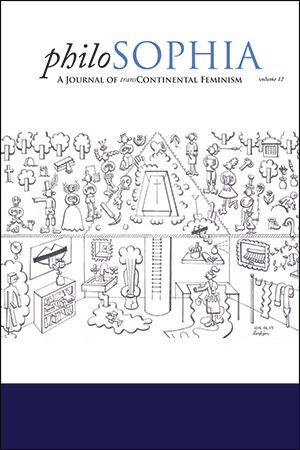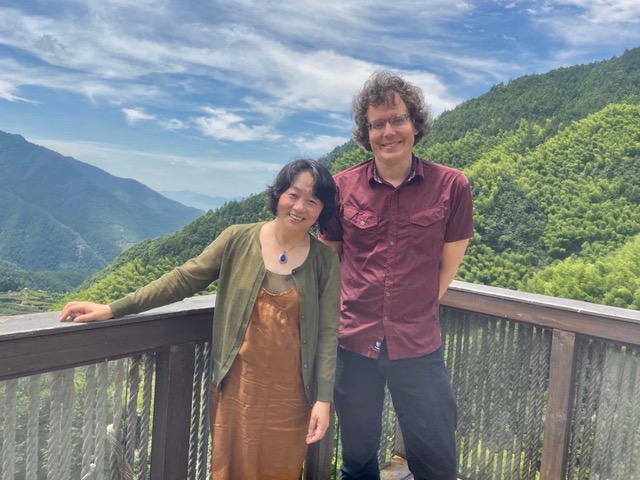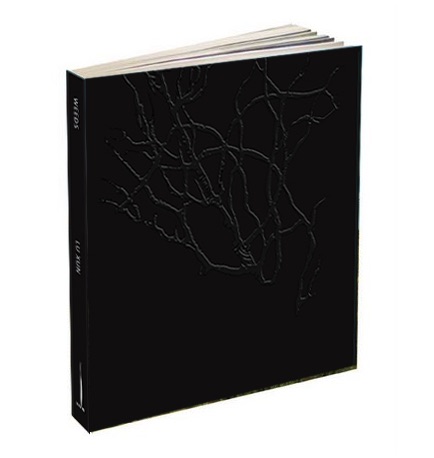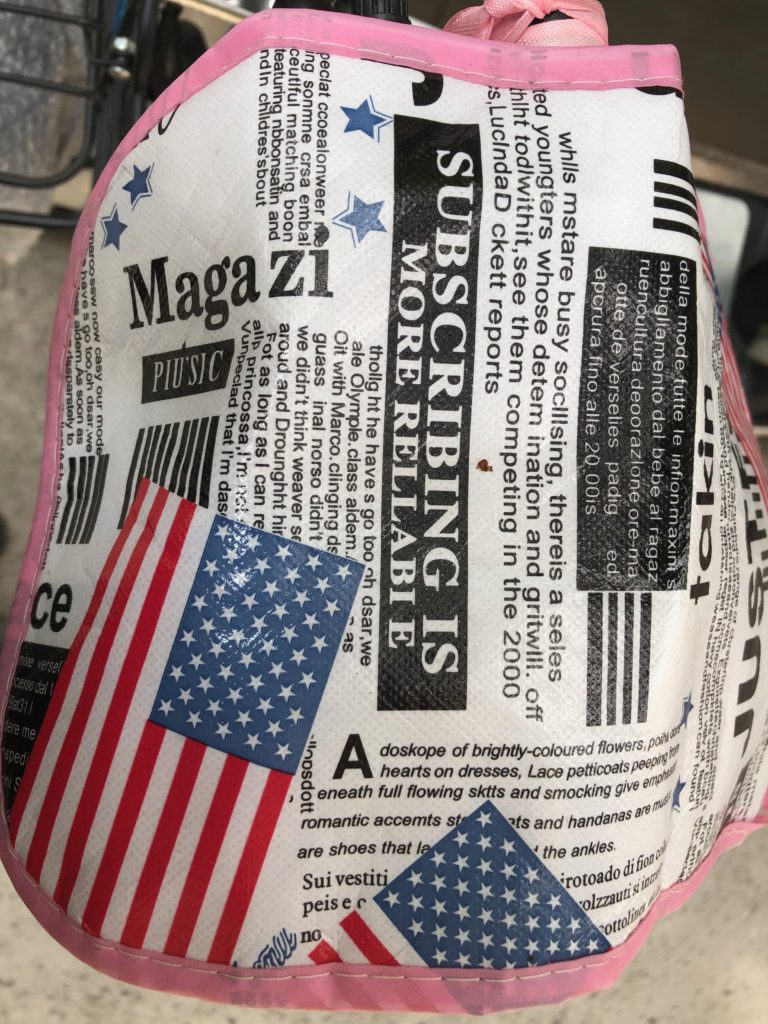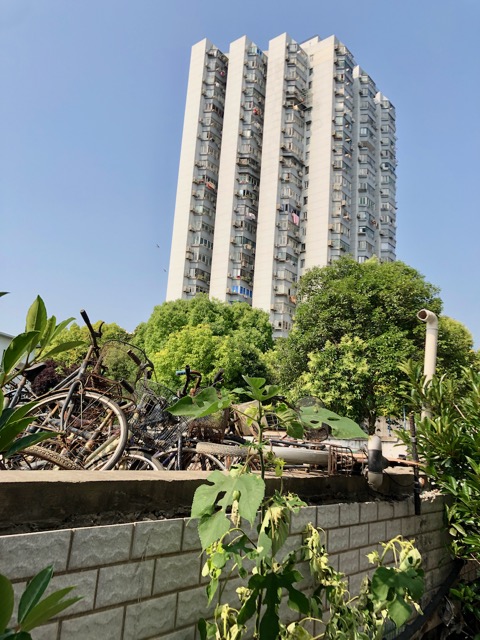The below originally appeared as brochure text for a video installation of 王宝菊 Wang Baoju’s《配乐诗朗诵:荒原》 Recitation of Music Poems:The Wasteland Performance Video, 65′06″ 王宝菊 2020 shown in September 2023 at Philadelphia’s Pollinator.
What can a notoriously “difficult” 100-year poem written in England by a white male American expatriate poet based in the “unreal city” of London tell us about life today?
And what if a female Chinese artist recites it in a Chinese translation in the hyper-unreal city of Beijing in the pandemic year of 2020, in rhythm to the “soundtrack” of a beeping of a crosswalk traffic light?
When I was a kid, it was popular to do poetry recitations to music. The background music was usually very melodious, and the poetry was recited in a very emotional vocal style. But when I stood there reciting “The Waste Land” under a traffic light accompanied by the rhythm of the traffic light’s beeping, it became fragmented, and the emotional element was also fragmented. In this way, poetry loses the poetic flavor it should have. The whole work is totally absurd, wasted, ridiculous.
–Wang Baoju on her performance recitation of T.S. Eliot’s
“The Waste Land” in Chinese translation
In the artist’s statement accompanying her “Poetry Recitation with Music: The Waste Land,” Beijing-based artist Wang Baoju concludes by saying that her recitation of a Chinese translation of T.S. Eliot’s famous 1922 poem performed in time to a Beijing traffic light’s beeping is “absurd.”
But if we stop at simple dictionary definitions (or stop with Google Translate), we lose some important word play. Wang uses the word 荒诞, pronounced huangdan and meaning “absurd, ridiculous, over the top,” to describe the nature of her performance. In doing so, she echoes the Chinese translation of the title of Eliot’s poem: 荒原 huangyuan.
The character 荒 huang repeats, suggesting that not only is Wang’s performance inherently absurd (or, better put, absurdist in the tradition of art that reflects real-world absurdity), but that it also does something with and to Eliot’s modernist masterpiece, that it, we might say, somehow wastes the poem, or uses the poem to waste something about poetry itself, or our time, or contemporary Beijing, that it somehow wastes the Waste Land, whatever that might mean.
What are we, as viewers, to do with this?
Can we relate to interminable waits?
To our time being cut up by machines, computers, algorithms, codes (Continued)

